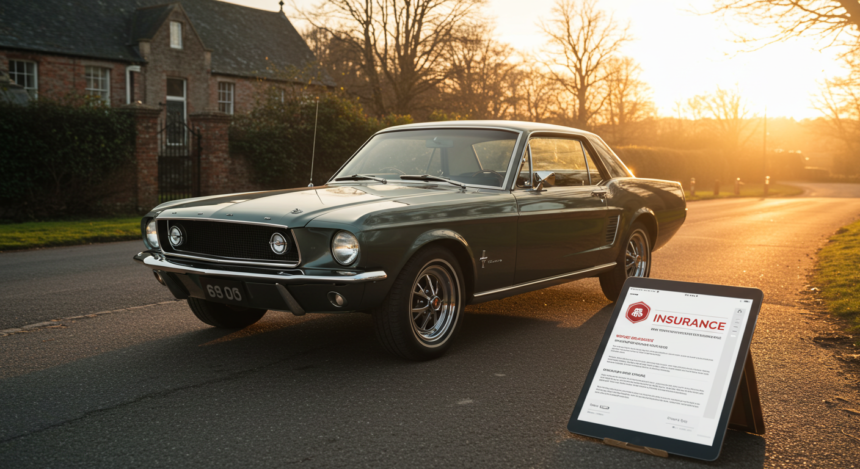Introduction to Classic Car Insurance
Classic car insurance is a specialized type of vehicle insurance designed to provide coverage for older, vintage, or collector vehicles. Unlike standard auto insurance, which caters primarily to daily drivers, classic car insurance recognizes the unique value and needs of vintage automobiles. These vehicles often have higher emotional and monetary worth, necessitating a tailored approach to their protection. The definition of a “classic car” can vary, typically encompassing vehicles that are at least 20 years old, though some insurance providers might extend this classification to include high-performance models or limited editions.
The core difference between classic car insurance and standard automobile policies lies in the assessed value of the vehicle. While motor insurance policies for regular cars are generally based on depreciation, classic car insurance often uses agreed value coverage. This means that the owner and insurer agree upon a set value for the car before any claims arise, ensuring that, in the event of a total loss, the owner receives a fair payout reflective of the vehicle’s collector value.
Moreover, classic car enthusiasts often take special care of their vehicles, limiting their usage compared to typical cars that are used for daily commuting. This reduced mileage, along with the vehicle’s condition and originality, can significantly impact premiums. Insurers might provide more affordable rates for classic car insurance due to the lower risk associated with infrequent use and the careful maintenance of these cars. As classic car ownership rises, understanding the nuances of this specialized insurance becomes increasingly important for enthusiasts who wish to protect their investments appropriately.
Who Needs Classic Car Insurance?
Classic car insurance is specifically designed for individuals and entities that own vehicles considered collectible, vintage, or classic. Typically, classic car collectors and enthusiasts are the primary groups seeking this type of specialized vehicle insurance. These owners often have a deep appreciation for the history and craftsmanship of older automobiles, which significantly impacts their value and the need for proper insurance coverage.
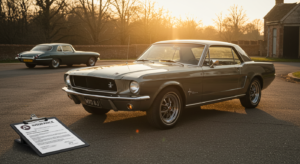 Classic car collectors may have acquired several vehicles as an investment or due to a passion for a particular make or model. For these individuals, classic car insurance provides coverage tailored to the unique risks associated with vintage vehicles. Unlike standard auto insurance, policies designed for classic cars usually account for factors such as the vehicle’s age, rarity, and condition, offering better financial protection should damage or loss occur.
Classic car collectors may have acquired several vehicles as an investment or due to a passion for a particular make or model. For these individuals, classic car insurance provides coverage tailored to the unique risks associated with vintage vehicles. Unlike standard auto insurance, policies designed for classic cars usually account for factors such as the vehicle’s age, rarity, and condition, offering better financial protection should damage or loss occur.
Additionally, those who use classic cars as part of their lifestyle—participating in car shows, vintage road rallies, or club events—also benefit from classic car insurance. These types of gatherings often expose the vehicles to risks that standard motor insurance might not adequately cover. It is essential to protect these assets with insurance that recognizes their unique value while ensuring compliance with any legal requirements.
It’s worth noting that in various regions, there may be specific legal obligations related to insuring classic vehicles. Owners are typically required to carry at least minimal vehicle insurance, and in some jurisdictions, classic car insurance policies can serve as a substitute for traditional auto insurance, provided specific criteria are met. Thus, understanding local regulations is crucial for anyone owning a classic car to maintain compliance and secure the necessary coverage effectively.
What Does Classic Car Insurance Cover?
Classic car insurance policies are designed to provide tailored coverage specifically for vintage and collector vehicles, distinguishing them from standard auto insurance. Understanding these coverages is crucial for car enthusiasts and collectors alike to ensure their valuable assets are adequately protected.
First and foremost, liability coverage is a fundamental aspect of any vehicle insurance policy, including classic car insurance. This coverage protects the policyholder against claims from other parties in the event of an accident that causes bodily injury or property damage. It ensures that you are financially equipped to handle legal responsibilities arising from an unfortunate event.
Another significant component of classic car insurance is collision coverage. This aspect protects classic car owners from financial loss due to damage sustained in an accident, regardless of fault. Whether your collector car collides with another vehicle or is involved in a single-car accident, collision coverage can help restore the vehicle to its pre-accident condition, subject to the policy’s terms and conditions.
In addition to collision coverage, comprehensive coverage is essential for safeguarding classic cars against a variety of non-collision-related risks. This coverage typically encompasses damages resulting from theft, vandalism, fire, weather-related events, and more. For classic car owners, the protection provided by comprehensive coverage plays a pivotal role in securing their investment against unforeseen circumstances that could otherwise lead to significant financial loss.
Moreover, classic car insurance often includes agreed value coverage. This innovative feature allows lovers of vintage cars to set a mutually agreed-upon value for their automobile, ensuring that in the event of a total loss, they receive that value instead of the depreciated market value. This element is vital for collectors who understand that the worth of a classic car can appreciate over time, thus needing protection that reflects its true value.
Understanding the specifics of these coverages allows classic car owners to choose an insurance plan that meets their unique needs, providing peace of mind while enjoying their beloved vehicles.
Where Is Classic Car Insurance Available?
Classic car insurance is accessible through various avenues, notably specialized insurance providers and traditional motor insurance companies. These options cater specifically to collectors and enthusiasts seeking vehicle insurance tailored to their unique needs. Specialized providers often focus exclusively on classic and collector’s cars, offering customized coverage that reflects the value and usage of these vehicles. These companies understand the specific requirements of classic car owners, thus ensuring that the policies not only cover typical damages but also factors such as restoration costs and agreed value coverage.
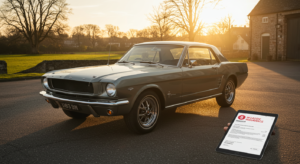 Nevertheless, traditional auto insurance companies may also offer classic car insurance as part of their services. While their products might not be tailored solely for classic vehicles, these companies can still provide suitable coverage, albeit possibly with less favorable terms for enthusiasts. It is essential for owners to assess both options and compare the benefits and limitations before making a choice.
Nevertheless, traditional auto insurance companies may also offer classic car insurance as part of their services. While their products might not be tailored solely for classic vehicles, these companies can still provide suitable coverage, albeit possibly with less favorable terms for enthusiasts. It is essential for owners to assess both options and compare the benefits and limitations before making a choice.
Regional differences also play a significant role in the availability of classic car insurance. Certain areas may have more specialized providers or different regulations affecting vehicle insurance policies. For instance, vintage car collectors in states with strong automotive heritage may have local insurers that are well-versed in classic car valuations. Additionally, some jurisdictions impose specific requirements regarding policy coverage, which can impact how collectors choose to insure their vehicles.
To find the right provider, classic car enthusiasts are advised to conduct thorough research. Seeking recommendations from fellow collectors, checking online reviews, and obtaining multiple quotes are effective strategies. In essence, understanding the full scope of available options is paramount in securing the most appropriate insurance coverage for a classic car.
Advantages of Classic Car Insurance
Classic car insurance offers numerous advantages specifically designed to cater to the unique needs of vintage vehicle owners. One of the primary benefits is that it provides enhanced coverage options tailored for antique vehicles. Unlike standard auto insurance policies, classic car insurance typically includes provisions for agreed value coverage. This means that the insured value of the vehicle is set mutually between the owner and the insurer, ensuring that in the event of a total loss, the vehicle will be compensated at its appraised worth rather than its depreciated market value. This feature protects the collector’s financial investment and is particularly crucial given the potential appreciation in value of classic cars over time.
Another key advantage is the lower premiums associated with limited mileage. Most classic car insurance policies are designed for vehicles that are not used as daily drivers. Many insurers offer significant discounts for limited annual mileage, recognizing that classic cars are typically driven less frequently than regular vehicles. This encourages responsible ownership and helps lower costs for enthusiasts who only take their vehicles out on special occasions or to car shows.
Furthermore, classic car insurance often provides access to specialized repairs and restoration services. Many insurers work closely with garages and repair shops that have expertise in vintage vehicle restoration. This ensures that any repairs or maintenance work carried out on the vehicle meets the required standards for maintaining its condition and value. Such specialized attention is vital for collectors who wish to preserve the originality and authenticity of their classic cars.
In conclusion, the advantages of classic car insurance extend beyond mere financial protection. With tailored coverage, reduced premiums for limited use, and access to specialized services, it plays a critical role in safeguarding the investments of classic car enthusiasts.
Disadvantages of Classic Car Insurance
While classic car insurance offers a tailored approach for vehicle owners, potential drawbacks warrant consideration. One prominent disadvantage is the restrictions often imposed on mileage. Unlike traditional auto insurance, many classic car insurance policies limit the annual mileage a vehicle can accumulate. Such limitations may prove problematic for those who use their classic vehicles for extended road trips or frequent leisure drives. Owners must be diligent in tracking their mileage to avoid policy violations, which could lead to financial penalties.
Another aspect to consider is the restrictions on how the vehicle can be used. Classic car insurance policies typically prioritize preservation and may stipulate that the vehicle cannot be used for regular commutes or business purposes. This limitation can be inconvenient for car enthusiasts who enjoy driving their collectors car regularly, creating a clash between enjoyment and compliance.
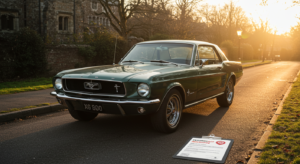 Cost is an additional factor that consumers may find concerning. While classic car insurance can often be more affordable compared to standard motor insurance, certain demographics, particularly younger drivers or those with less driving experience, may face significantly higher premiums. This disparity can limit accessibility for enthusiasts who wish to own a collectors car but are deterred by elevated costs associated with the insurance needed to protect their investment. Furthermore, obtaining a policy may require a vehicle appraisal or proof of vehicle storage, adding to the initial investment required for classic car ownership.
Cost is an additional factor that consumers may find concerning. While classic car insurance can often be more affordable compared to standard motor insurance, certain demographics, particularly younger drivers or those with less driving experience, may face significantly higher premiums. This disparity can limit accessibility for enthusiasts who wish to own a collectors car but are deterred by elevated costs associated with the insurance needed to protect their investment. Furthermore, obtaining a policy may require a vehicle appraisal or proof of vehicle storage, adding to the initial investment required for classic car ownership.
Considering these potential drawbacks—mileage restrictions, usage limitations, and affordability challenges—prospective classic car insurance applicants should perform thorough research and assess their unique circumstances. By understanding these disadvantages, car owners can make informed decisions about the best form of vehicle insurance suited to their needs.
Factors Affecting Classic Car Insurance Premiums
When it comes to classic car insurance, several factors can significantly affect the premiums that owners are required to pay. The age, make, and model of the classic vehicle are among the foremost aspects considered by insurance providers. Older cars, especially those that fall into classic or vintage categories, may qualify for specialized coverage, which can either drive costs down or increase them based on demand and rarity. For instance, a rare classic car that is sought after by collectors might have a higher premium due to its perceived value and the cost of potential repairs.
The condition of the vehicle is another critical determinant in pricing auto insurance. A well-maintained classic car will likely attract lower premiums because it suggests less risk of damage or mechanical issues. Conversely, a vehicle in poor condition may result in higher premiums, as repairs or replacements might be more frequent and expensive. Moreover, how the classic car is used plays a vital role; vehicles that are driven regularly often incur higher rates compared to those that are only taken out for special occasions or car shows.
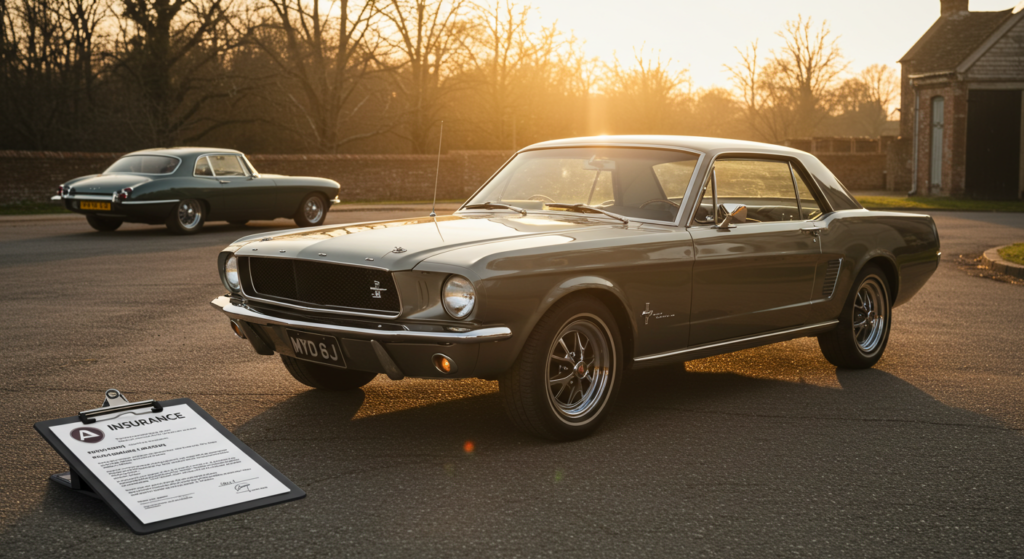
Security features installed in the classic car also influence vehicle insurance premiums. Enhanced features such as alarms, immobilizers, and secure storage can reduce the risk of theft, resulting in discounts on insurance coverage. Additionally, the driving history of the owner is a crucial factor. A clean driving record with minimal claims can help lower the cost of premiums, while a record marked by accidents, traffic offenses, or insurance claims can lead to escalated costs. By understanding these factors, classic car owners can make informed decisions and potentially save money on their insurance policies.
How to Choose the Right Classic Car Insurance
Choosing the right classic car insurance is a critical step for collectors and enthusiasts who wish to protect their investments while enjoying their vehicles on the road. Several factors should be considered to ensure an appropriate insurance policy that provides ample coverage and meets individual needs.
First, it is essential to evaluate the coverage options available for classic car insurance. Unlike standard auto insurance, classic car policies may include specialized coverage for things like agreed value and spare parts. Agreed value means that in the event of a total loss, you will receive a predetermined amount that reflects the car’s market value, rather than the depreciated value. This is particularly important for collectors cars, as they often appreciate in value over time. Be sure to inquire about any coverage exclusions as well, to avoid unexpected gaps in protection.
Next, comparing quotes from different providers is an integral part of the selection process. Insurance premiums can vary significantly, so it is advisable to gather quotes from multiple carriers specializing in vehicle insurance for classic models. Many insurers offer easy online quote tools, allowing you to fill in your vehicle’s details and receive personalized rates quickly. Additionally, consider whether the insurance provider has a solid reputation in the classic car community, as this can often reflect their level of customer service and reliability.
Lastly, do not overlook the importance of customer reviews and testimonials. Reading experiences from other classic car enthusiasts can shed light on the insurer’s strengths and weaknesses, particularly in claims handling. Asking potential insurance providers the right questions, such as about their claims process or coverage limits, can further help you determine the best policy for your needs. Evaluating these considerations will go a long way in securing the appropriate classic car insurance that protects your valuable vehicle.
Conclusion: Making an Informed Decision
In the realm of vehicle insurance, classic car insurance presents a unique set of considerations for collectors and enthusiasts alike. Understanding the intricacies of this specialized auto insurance is paramount for anyone considering the acquisition of a classic vehicle. Traditional motor insurance policies often fail to account for the distinctive needs and value of classic cars. Therefore, it is essential for owners to recognize the differences in coverage options to ensure their investment is adequately protected.
Throughout this discussion, we have highlighted the main components of classic car insurance, which include factors such as agreed value coverage, the significance of usage limitations, and the benefits of joining collector car clubs for additional discounts and resources. It is crucial for classic car owners to evaluate their specific circumstances, including the frequency of use, storage conditions, and overall vehicle condition, when selecting the appropriate policy. This tailored approach will not only provide peace of mind but also enhance the overall protection of these vehicles.
Before making a final decision, potential policyholders are encouraged to compare different providers and their offerings. Assessing various policies with a keen eye on premium costs, coverage limitations, and customer service can lead to more favorable outcomes in terms of both financial security and satisfaction. As classic vehicles require dedicated care and protection, understanding the nuances of classic car insurance will empower owners to make informed choices. Taking the time to scrutinize insurance options ensures that they align with the specific needs and values of collectors. Ultimately, investing in the right vehicle insurance can provide long-term benefits and safeguard cherished automotive treasures.

